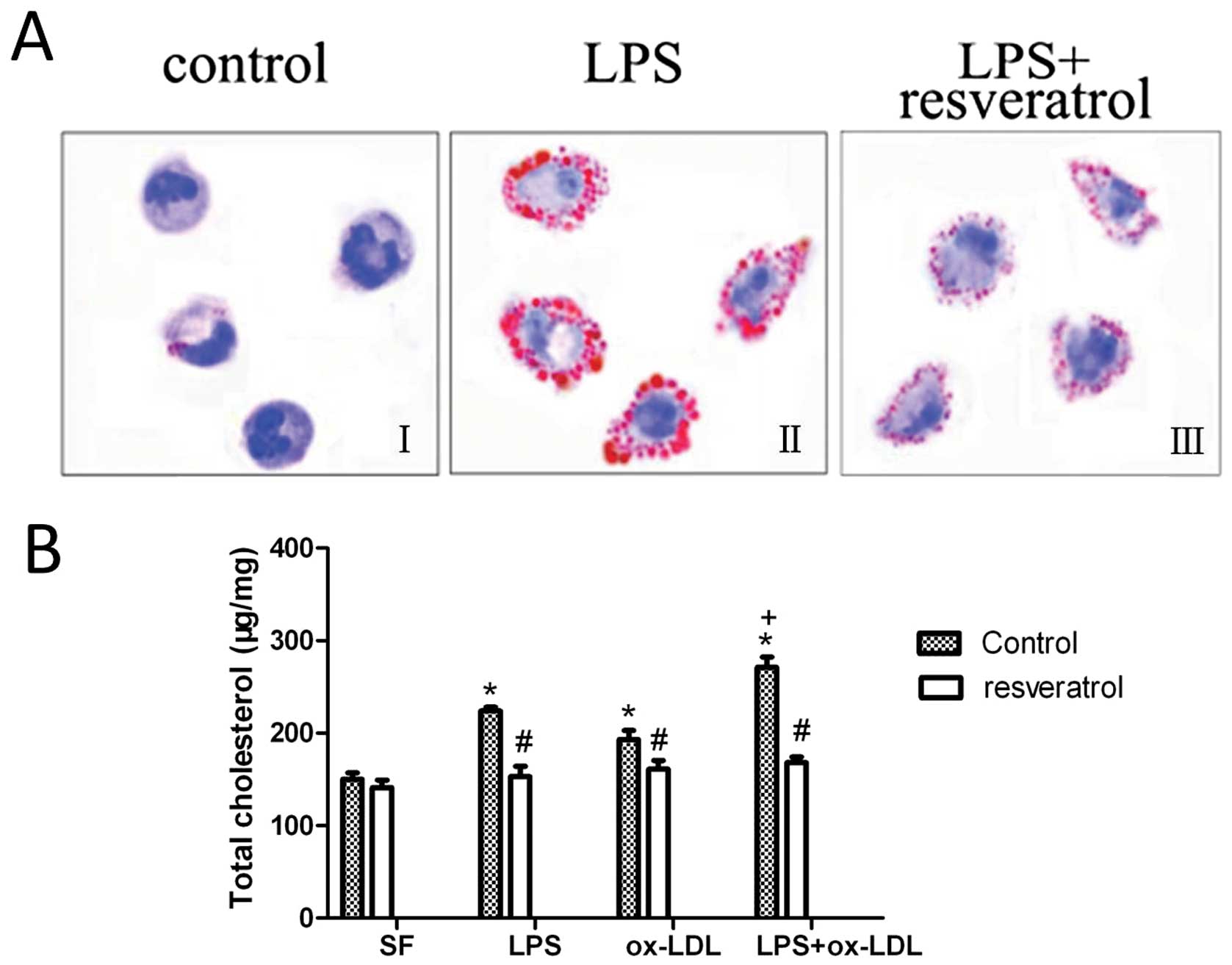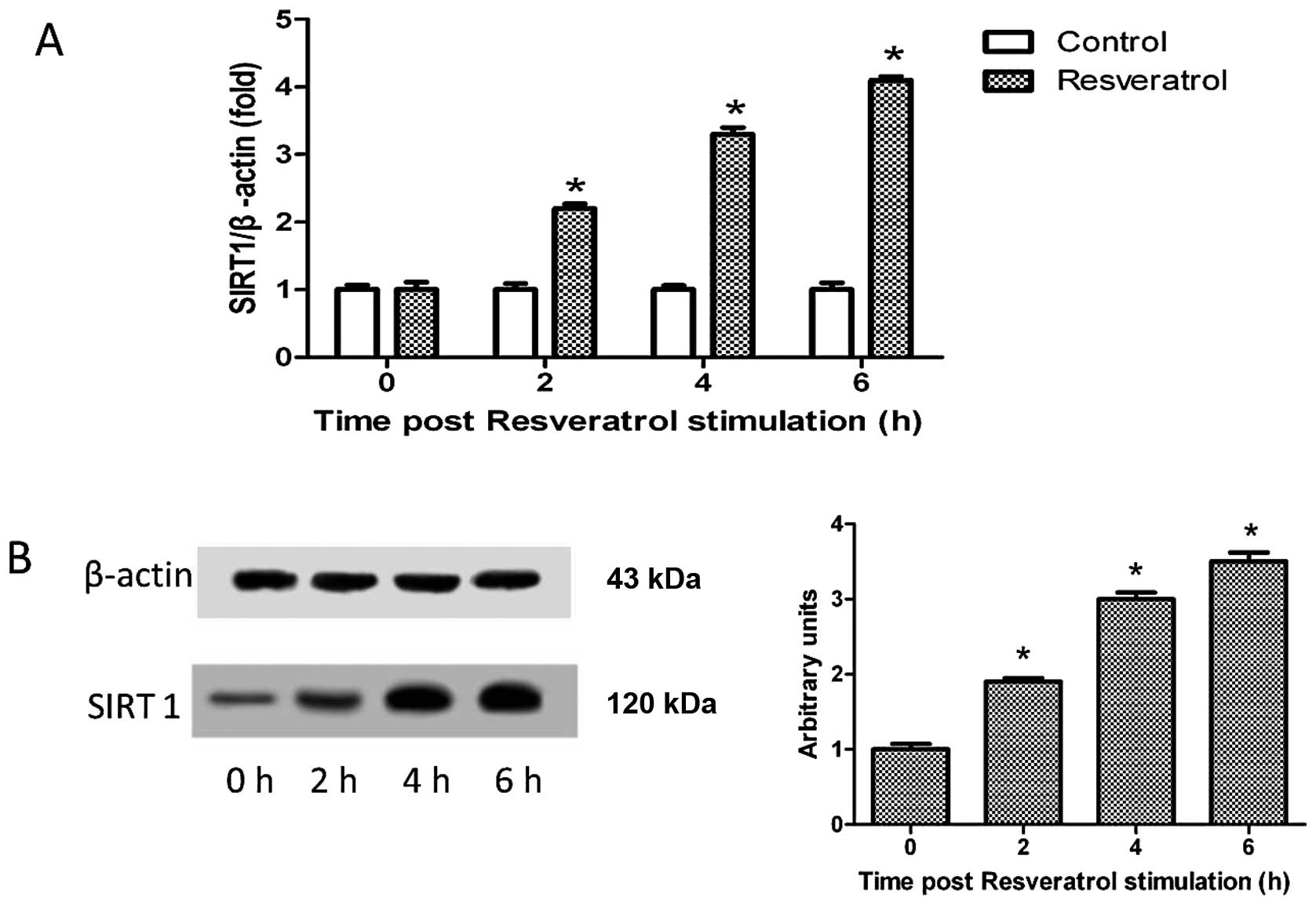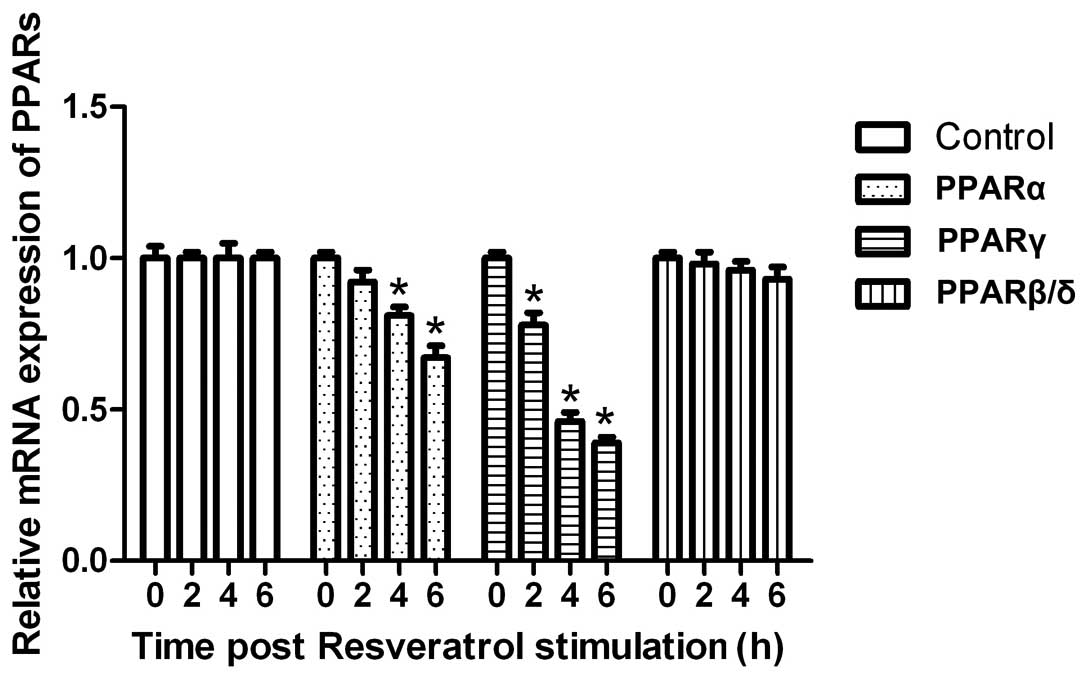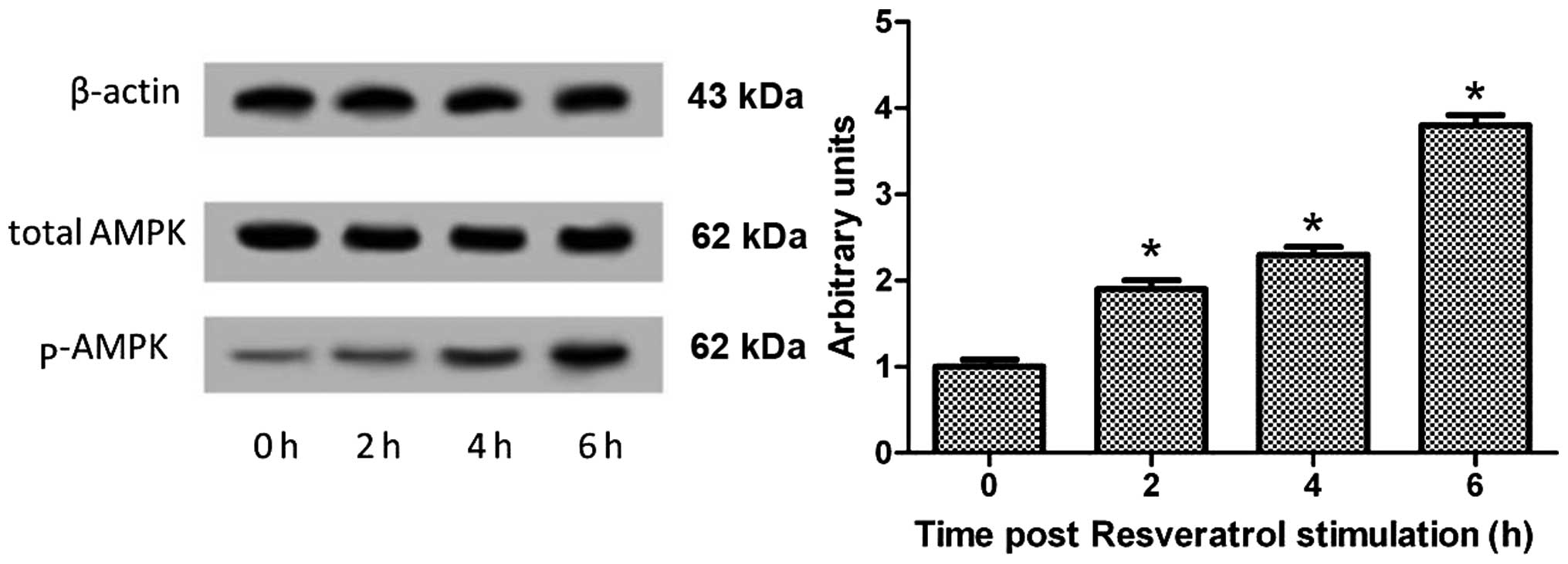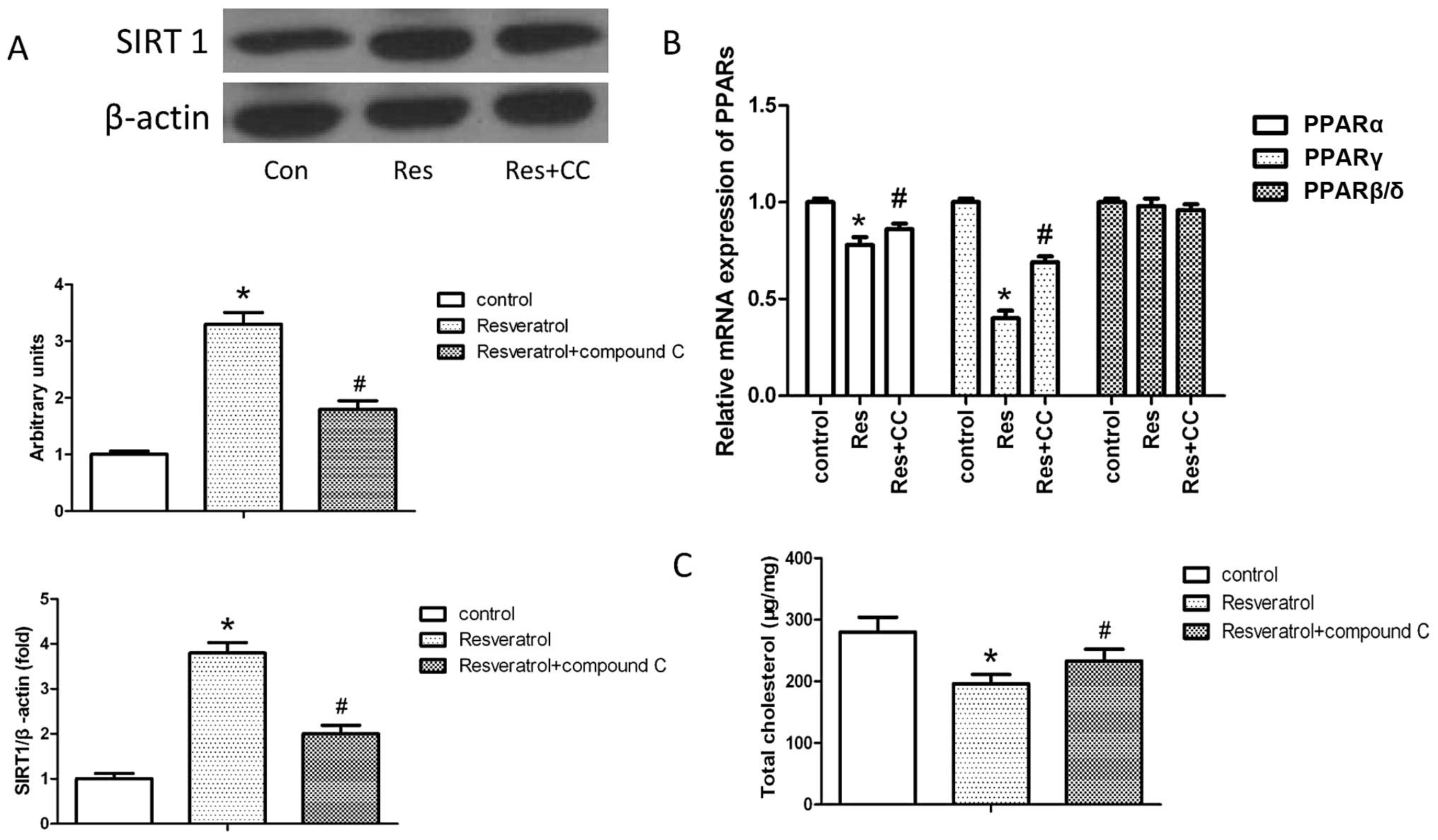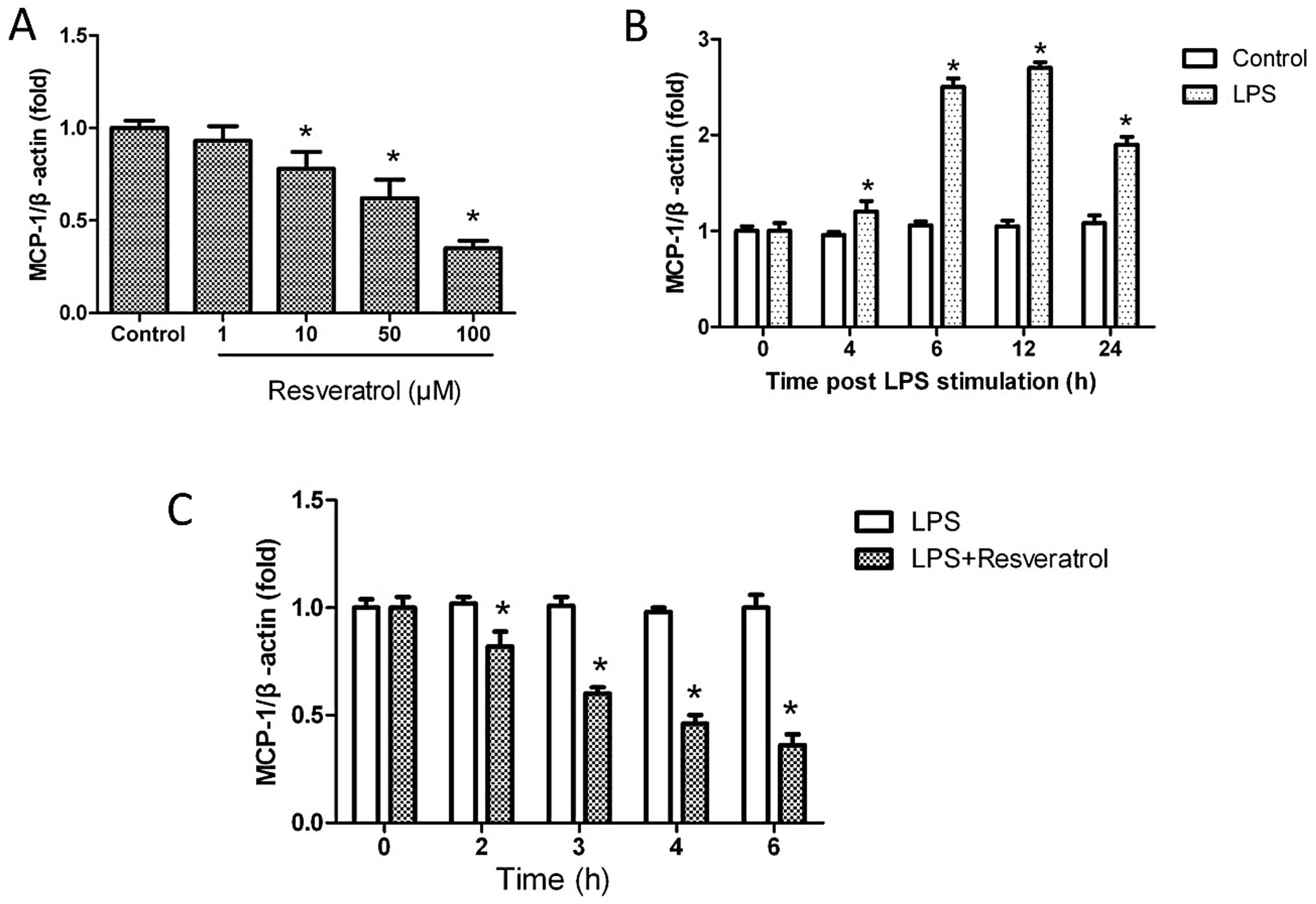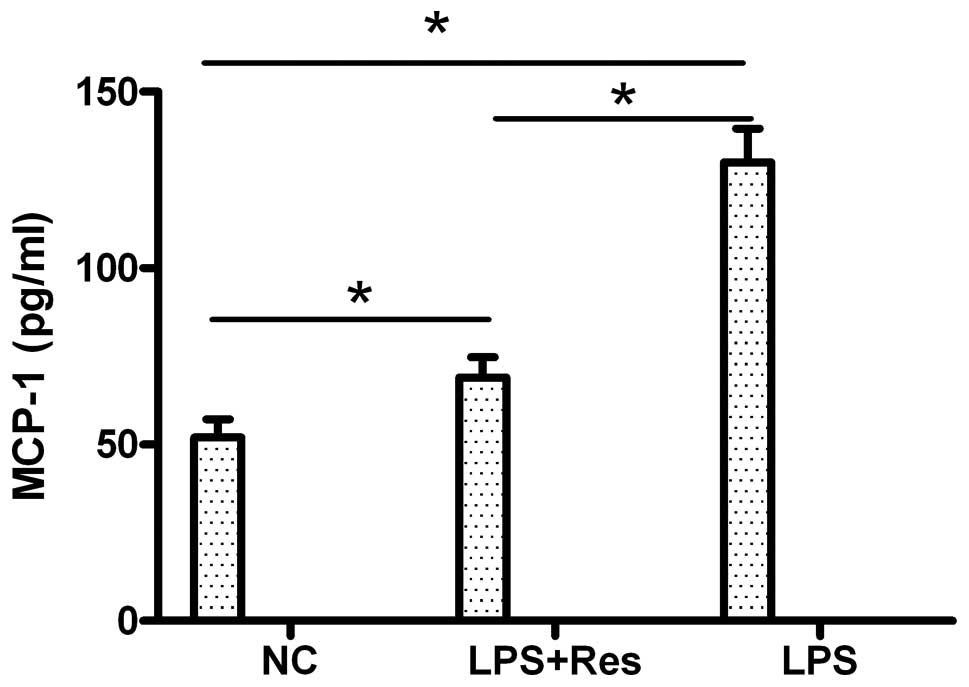|
1
|
Andersson J, Libby P and Hansson GK:
Adaptive immunity and atherosclerosis. Clin Immunol. 134:33–46.
2010. View Article : Google Scholar
|
|
2
|
Hansson GK: Inflammation, atherosclerosis,
and coronary artery disease. N Engl J Med. 352:1685–1695. 2005.
View Article : Google Scholar : PubMed/NCBI
|
|
3
|
Weber C, Zernecke A and Libby P: The
multifaceted contributions of leukocyte subsets to atherosclerosis:
lessons from mouse models. Nat Rev Immunol. 8:802–815. 2008.
View Article : Google Scholar : PubMed/NCBI
|
|
4
|
Boring L, Gosling J, Cleary M and Charo
IF: Decreased lesion formation in CCR2−/− mice reveals a
role for chemokines in the initiation of atherosclerosis. Nature.
394:894–897. 1998. View
Article : Google Scholar : PubMed/NCBI
|
|
5
|
Gu L, Okada Y, Clinton SK, et al: Absence
of monocyte chemoattractant protein-1 reduces atherosclerosis in
low density lipoprotein receptor-deficient mice. Mol Cell.
2:275–281. 1998. View Article : Google Scholar : PubMed/NCBI
|
|
6
|
Edfeldt K, Swedenborg J, Hansson GK and
Yan ZQ: Expression of toll-like receptors in human atherosclerotic
lesions: a possible pathway for plaque activation. Circulation.
105:1158–1161. 2002.PubMed/NCBI
|
|
7
|
Fan EG, Zhang LJ, Jiang S and Bai YH:
Beneficial effects of resveratrol on atherosclerosis. J Med Food.
11:610–614. 2008. View Article : Google Scholar : PubMed/NCBI
|
|
8
|
Palmieri D, Pane B, Barisione C, et al:
Resveratrol counteracts systemic and local inflammation involved in
early abdominal aortic aneurysm development. J Surg Res.
171:e237–246. 2011. View Article : Google Scholar : PubMed/NCBI
|
|
9
|
Prasad K: Natural products in regression
and slowing of progression of atherosclerosis. Curr Pharm
Biotechnol. 11:794–800. 2010. View Article : Google Scholar : PubMed/NCBI
|
|
10
|
Zhu X, Liu Q, Wang M, et al: Activation of
Sirt1 by resveratrol inhibits TNF-alpha induced inflammation in
fibroblasts. PLoS ONE. 6:e270812011. View Article : Google Scholar : PubMed/NCBI
|
|
11
|
Militaru C, Donoiu I, Craciun A, Scorei
ID, Bulearca AM and Scorei RI: Oral resveratrol and calcium
fructoborate supplementation in subjects with stable angina
pectoris: effects on lipid profiles, inflammation markers, and
quality of life. Nutrition. 29:178–183. 2013. View Article : Google Scholar
|
|
12
|
Voloshyna I, Hai O, Littlefield MJ,
Carsons S and Reiss AB: Resveratrol mediates anti-atherogenic
effects on cholesterol flux in human macrophages and endothelium
via PPAR gamma and adenosine. Eur J Pharmacol. 698:299–309. 2013.
View Article : Google Scholar : PubMed/NCBI
|
|
13
|
Vingtdeux V, Chandakkar P, Zhao H, Davies
P and Marambaud P: Small-molecule activators of AMP-activated
protein kinase (AMPK), RSVA314 and RSVA405, inhibit adipogenesis.
Mol Med. 17:1022–1030. 2011. View Article : Google Scholar : PubMed/NCBI
|
|
14
|
Fullerton MD, Steinberg GR and Schertzer
JD: Immunometabolism of AMPK in insulin resistance and
atherosclerosis. Mol Cell Endocrinol. 366:224–234. 2013. View Article : Google Scholar : PubMed/NCBI
|
|
15
|
Siriwardhana N, Kalupahana NS, Cekanova M,
LeMieux M, Greer B and Moustaid-Moussa N: Modulation of adipose
tissue inflammation by bioactive food compounds. J Nutr Biochem.
24:613–623. 2013. View Article : Google Scholar : PubMed/NCBI
|
|
16
|
Crandall JP and Barzilai N: Exploring the
promise of resveratrol: where do we go from here? Diabetes.
62:1022–1023. 2013. View Article : Google Scholar : PubMed/NCBI
|
|
17
|
Coll B, Alonso-Villaverde C and Joven J:
Monocyte chemoattractant protein-1 and atherosclerosis: is there
room for an additional biomarker? Clin Chim Acta. 383:21–29. 2007.
View Article : Google Scholar : PubMed/NCBI
|
|
18
|
Charo IF and Taubman MB: Chemokines in the
pathogenesis of vascular disease. Circ Res. 95:858–866. 2004.
View Article : Google Scholar : PubMed/NCBI
|
|
19
|
McLaren JE, Michael DR, Ashlin TG and
Ramji DP: Cytokines, macrophage lipid metabolism and foam cells:
implications for cardiovascular disease therapy. Prog Lipid Res.
50:331–347. 2011. View Article : Google Scholar : PubMed/NCBI
|
|
20
|
Kallio KA, Buhlin K, Jauhiainen M, et al:
Lipopolysaccharide associates with pro-atherogenic lipoproteins in
periodontitis patients. Innate Immun. 14:247–253. 2008. View Article : Google Scholar : PubMed/NCBI
|
|
21
|
Vink A, Schoneveld AH, van der Meer JJ, et
al: In vivo evidence for a role of toll-like receptor 4 in the
development of intimal lesions. Circulation. 106:1985–1990. 2002.
View Article : Google Scholar : PubMed/NCBI
|
|
22
|
Park D-W, Kim J-S, Chin B-R and Baek S-H:
Resveratrol inhibits inflammation induced by heat-killed Listeria
monocytogenes. J Med Food. 15:788–794. 2012. View Article : Google Scholar : PubMed/NCBI
|
|
23
|
Feng X, Zhang Y, Xu R, et al:
Lipopolysaccharide up-regulates the expression of Fcalpha/mu
receptor and promotes the binding of oxidized low-density
lipoprotein and its IgM antibody complex to activated human
macrophages. Atherosclerosis. 208:396–405. 2010. View Article : Google Scholar : PubMed/NCBI
|
|
24
|
Winnik S, Stein S and Matter CM: SIRT1 -
an anti-inflammatory pathway at the crossroads between metabolic
disease and atherosclerosis. Curr Vasc Pharmacol. 10:693–696. 2012.
View Article : Google Scholar : PubMed/NCBI
|
|
25
|
Semple RK, Chatterjee VK and O’Rahilly S:
PPAR gamma and human metabolic disease. J Clin Invest. 116:581–589.
2006. View
Article : Google Scholar : PubMed/NCBI
|
|
26
|
dos Costa CS, Rohden F, Hammes TO, et al:
Resveratrol upregulated SIRT1, FOXO1, and adiponectin and
downregulated PPARgamma1–3 mRNA expression in human visceral
adipocytes. Obes Surg. 21:356–361. 2011.PubMed/NCBI
|
|
27
|
Nimmagadda VK, Bever CT, Vattikunta NR, et
al: Overexpression of SIRT1 protein in neurons protects against
experimental autoimmune encephalomyelitis through activation of
multiple SIRT1 targets. J Immunol. 190:4595–4607. 2013.
|
|
28
|
Cantó C, Jiang LQ, Deshmukh AS, et al:
Interdependence of AMPK and SIRT1 for metabolic adaptation to
fasting and exercise in skeletal muscle. Cell Metab. 11:213–219.
2010.PubMed/NCBI
|
|
29
|
Hardie DG: AMP-activated/SNF1 protein
kinases: conserved guardians of cellular energy. Nat Rev Mol Cell
Biol. 8:774–785. 2007. View
Article : Google Scholar : PubMed/NCBI
|
|
30
|
Canto C, Gerhart-Hines Z, Feige JN, et al:
AMPK regulates energy expenditure by modulating NAD+
metabolism and SIRT1 activity. Nature. 458:1056–1060. 2009.
View Article : Google Scholar : PubMed/NCBI
|
|
31
|
Costford SR, Bajpeyi S, Pasarica M, et al:
Skeletal muscle NAMPT is induced by exercise in humans. Am J
Physiol Endocrinol Metab. 298:E117–E126. 2010. View Article : Google Scholar : PubMed/NCBI
|
|
32
|
Libby P: Inflammation in atherosclerosis.
Nature. 420:868–874. 2002. View Article : Google Scholar
|
|
33
|
Hansson GK and Libby P: The immune
response in atherosclerosis: a double-edged sword. Nat Rev Immunol.
6:508–519. 2006. View
Article : Google Scholar : PubMed/NCBI
|
|
34
|
Park D-W, Baek K, Kim J-R, et al:
Resveratrol inhibits foam cell formation via NADPH oxidase
1-mediated reactive oxygen species and monocyte chemotactic
protein-1. Exp Mol Med. 41:171–179. 2009. View Article : Google Scholar : PubMed/NCBI
|
|
35
|
Li H, Song Y, Li F, et al: Identification
of lipid droplet-associated proteins in the formation of
macrophage-derived foam cells using microarrays. Int J Mol Med.
26:231–239. 2010.PubMed/NCBI
|
|
36
|
Hou X, Xu S, Maitland-Toolan KA, et al:
SIRT1 regulates hepatocyte lipid metabolism through activating
AMP-activated protein kinase. J Biol Chem. 283:20015–20026. 2008.
View Article : Google Scholar : PubMed/NCBI
|
|
37
|
Lagouge M, Argmann C, Gerhart-Hines Z, et
al: Resveratrol improves mitochondrial function and protects
against metabolic disease by activating SIRT1 and PGC-1alpha. Cell.
127:1109–1122. 2006. View Article : Google Scholar : PubMed/NCBI
|
|
38
|
Rodgers JT, Lerin C, Haas W, Gygi SP,
Spiegelman BM and Puigserver P: Nutrient control of glucose
homeostasis through a complex of PGC-1alpha and SIRT1. Nature.
434:113–118. 2005. View Article : Google Scholar : PubMed/NCBI
|
|
39
|
Reverchon M, Cornuau M, Cloix L, et al:
Visfatin is expressed in human granulosa cells: regulation by
metformin through AMPK/SIRT1 pathways and its role in
steroidogenesis. Mol Hum Reprod. 19:313–326. 2013. View Article : Google Scholar : PubMed/NCBI
|
|
40
|
Morita Y, Wada-Hiraike O, Yano T, et al:
Resveratrol promotes expression of SIRT1 and StAR in rat ovarian
granulosa cells: an implicative role of SIRT1 in the ovary. Reprod
Biol Endocrinol. 10:142012. View Article : Google Scholar : PubMed/NCBI
|
|
41
|
Picard F, Kurtev M, Chung N, et al: Sirt1
promotes fat mobilization in white adipocytes by repressing
PPAR-gamma. Nature. 429:771–776. 2004. View Article : Google Scholar : PubMed/NCBI
|
|
42
|
Baur JA, Pearson KJ, Price NL, et al:
Resveratrol improves health and survival of mice on a high-calorie
diet. Nature. 444:337–342. 2006. View Article : Google Scholar : PubMed/NCBI
|
|
43
|
von Grote EC, Venkatakrishnan V, Duo J and
Stenken JA: Long-term subcutaneous microdialysis sampling and
qRT-PCR of MCP-1, IL-6 and IL-10 in freely-moving rats. Mol
Biosyst. 7:150–161. 2011.PubMed/NCBI
|
|
44
|
Wang J, Si Y, Wu C, et al:
Lipopolysaccharide promotes lipid accumulation in human adventitial
fibroblasts via TLR4-NF-kappaB pathway. Lipids Health Dis.
11:1392012. View Article : Google Scholar
|
|
45
|
Culpitt SV, Rogers DF, Fenwick PS, et al:
Inhibition by red wine extract, resveratrol, of cytokine release by
alveolar macrophages in COPD. Thorax. 58:942–946. 2003. View Article : Google Scholar : PubMed/NCBI
|















